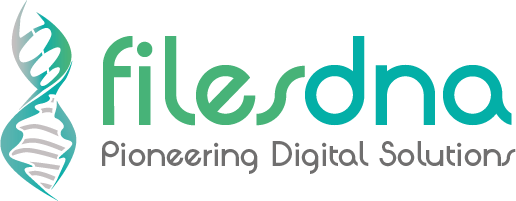Originations across the world are deploying emerging software solutions to empower their infrastructure, increase automation and drive efficiency in every process with the help of innovative technology. Digital signature software has also become an essential software needed for businesses to spend less time/effort and accomplish more.
At the end of this blog, you will know what makes electronic signature software trustworthy and reliable for your business.
What is a digital signature?
The digital signature is a mathematical technique for verifying the authenticity of a digital document, message, software, etc. In addition, the digital signature can validate the integrity of the message, i.e., the message or document is not altered, ensuring the transmission.
Digital signatures are used today as an alternative to handwritten signatures or stamps. Still, they are comparatively far more secure as complemented by cutting-edge futuristic technologies such as Artificial Intelligence, Machine learning, and blockchain technology.
Digital signatures have legal significance in many countries, the same as handwritten paper signatures. However, the major advantage of Digital Signature is that every access and change made is detectable, so there is no chance of information meddling. In addition, it renders additional details such as message origin, document status, date & time of signing, etc.
How is a Digital signature different from an E-signature?
Electronic Signature refers to any electronic method on a broad spectrum that indicates consent or acceptance of a contract, agreement, or record. In contrast, a digital signature is just a type of E-signature.
The implementation, purpose, geographical usage, and legal acceptance of Digital signatures are different from other Electronic Signatures.
Security is a major concern as a matter of confidentiality of any organization or individual’s information, so digital signature software is developed with high-end security capabilities.
Security features of digital signatures that reinforce the businesses & their trusted relationships in modern times are

Public Key infrastructure
PKI is a requisite to create a digital signature, and every PKI- based Digital signature transaction includes two keys: a private and a public key. The signer only uses the private key, and the public key is for stakeholders who validate the signer’s signature. The PKI system ensures that authorized entities only use the public key. In short, a person without the provided key cannot access the message or document.
This eliminates problems like non-repudiation. The signer cannot deny it later after they have signed the document.
Cryptography
Data integrity is another security advantage of using electronic signatures as there is no effective method to modify the encrypted message during transmission. If someone tries to change the message once it is digitally signed, the cryptographic functions automatically invalidate the signature.
Smart Cards
To secure the private key, the effective way is to store it on a smart card. The user will have to enter a personal identification number (PIN code) to activate the smart card and generate an electronic signature. It provides multilevel security because even if someone steals the smart card, they need the PIN code to activate it.
Authentication Security
One of the most common means to authenticate users by verifying their identity is PINs, Codes, and passwords. User needs to enter email, Username, Mobile number, password to sign into any electronic signature software.
Two-factor authentication is preferred by the platform developers to create an extra layer of security and make it difficult for hackers and fraudsters.
Certificate Authority & Digital Certificates
The CA (Certificate Authority) is a trusted third-party firm that ensures key protection, authenticates sender & recipient key issues, and maintains digital certificates. It helps to assure key safety and eliminate the creation of fake signatures.
Digital Certificate issued by the CA is proof that the key belongs to a particular organization and is required to create electronic signatures.
Smart Signature Pad
With the implementation of AI and Machine learning techniques, the smart pads identify various signature parameters to reject fraud or invalid electronic signatures. Only FilesDNA, the electronic & digital signatures software market leader, has introduced Smart Signature Pads to ensure next-level security.
Biometric, Fingerprint & Liveness Detection
Biometric and Fingerprint-based access is gaining popularity since the theft of credentials and security issues have increased over the years. The digital signature tool uses these methods to allows users to sign the document. FilesDNA technology has even made it possible to detect a live person with the use of biometrics.
Which is the Best Digital Signature Software?
Some of the most widely used and preferable electronic & digital signatures service providers are FilesDNA, DocuSign, AdobeSign, and SignNOW. These brands have provided secure, easy-to-use, and trusted & compliant platforms to various industries.
In addition to the large enterprises, Startups and SMBs have also anticipated that digital signatures must adopt technology in modern times to protect information and have secure document management.




